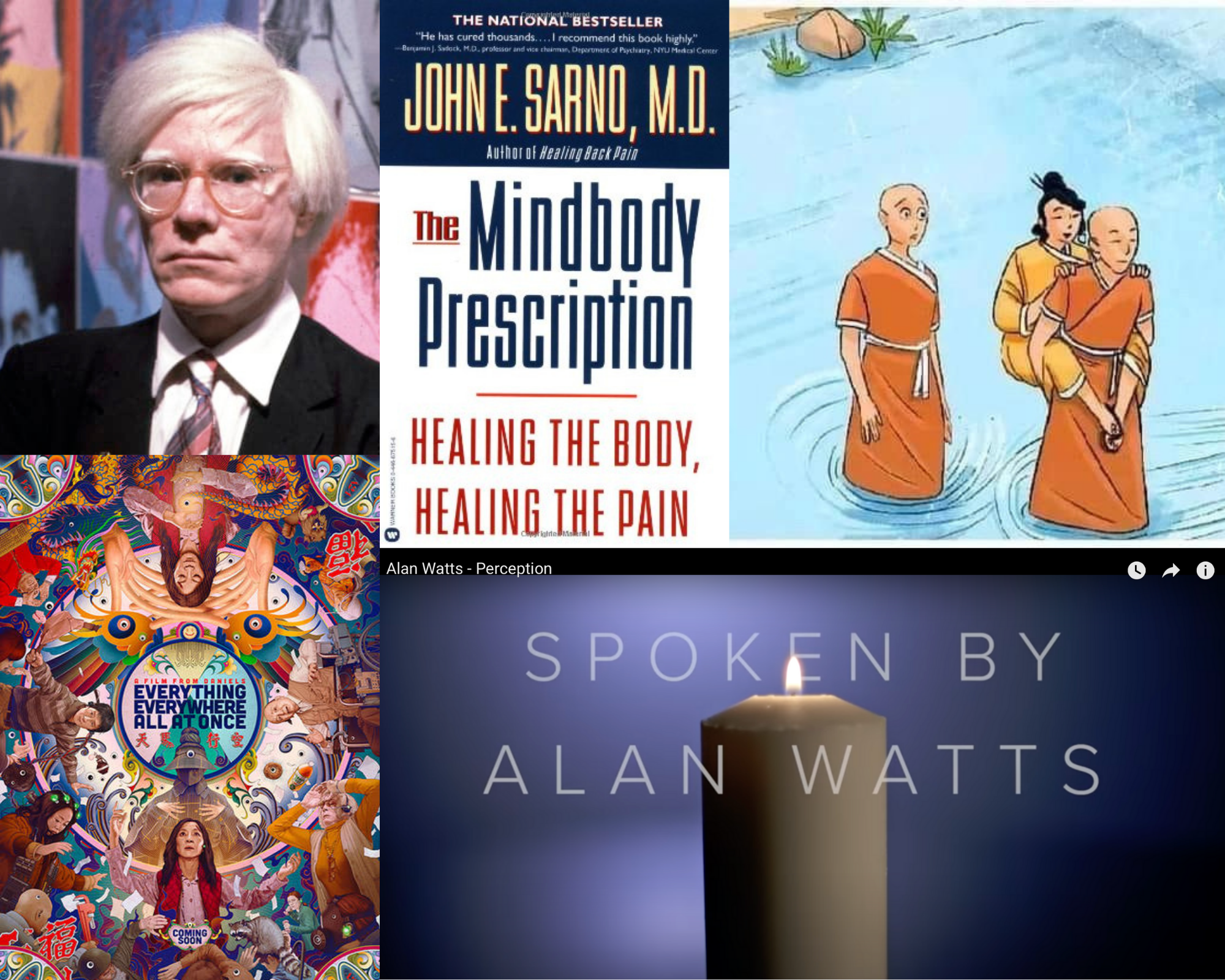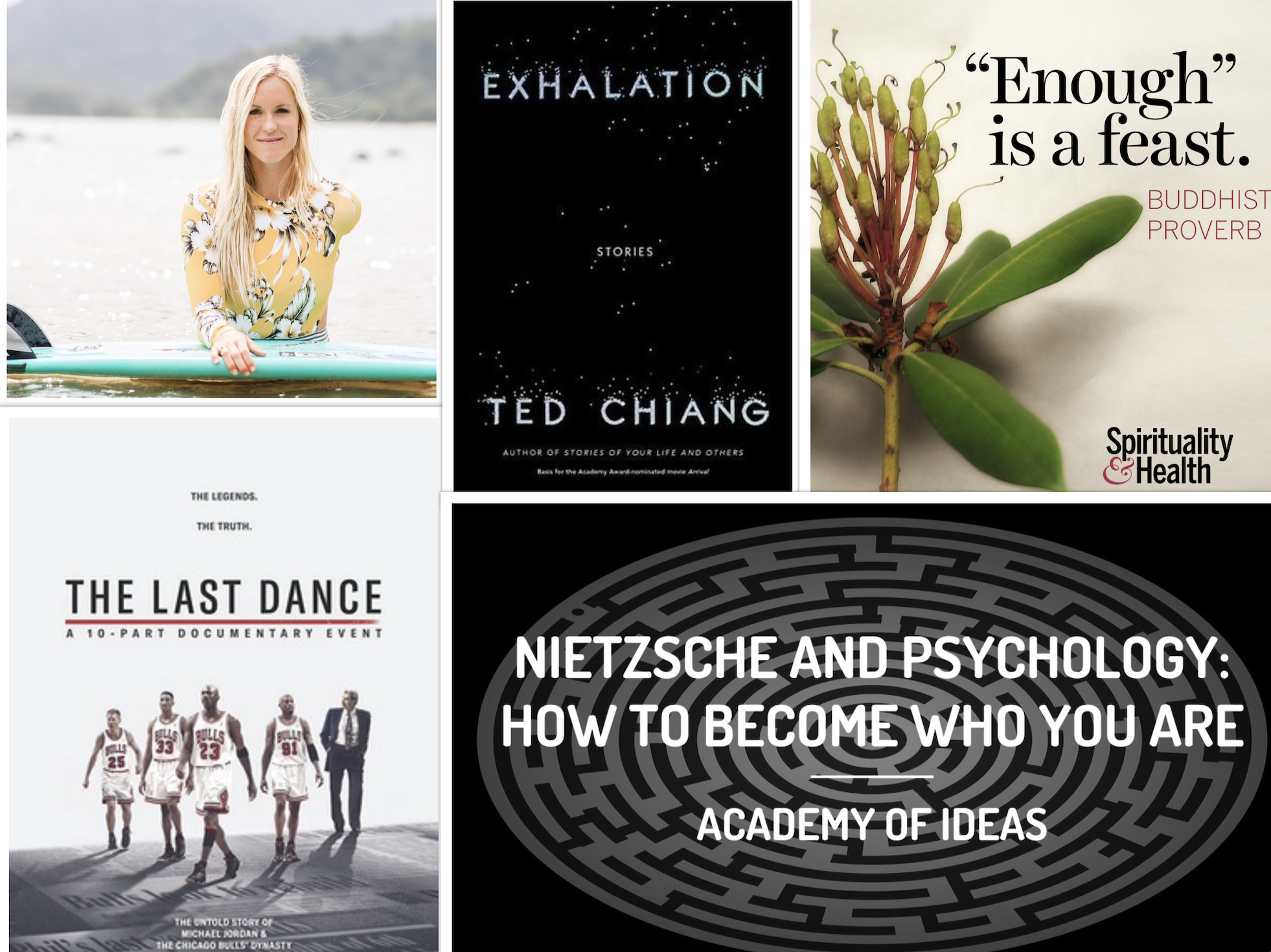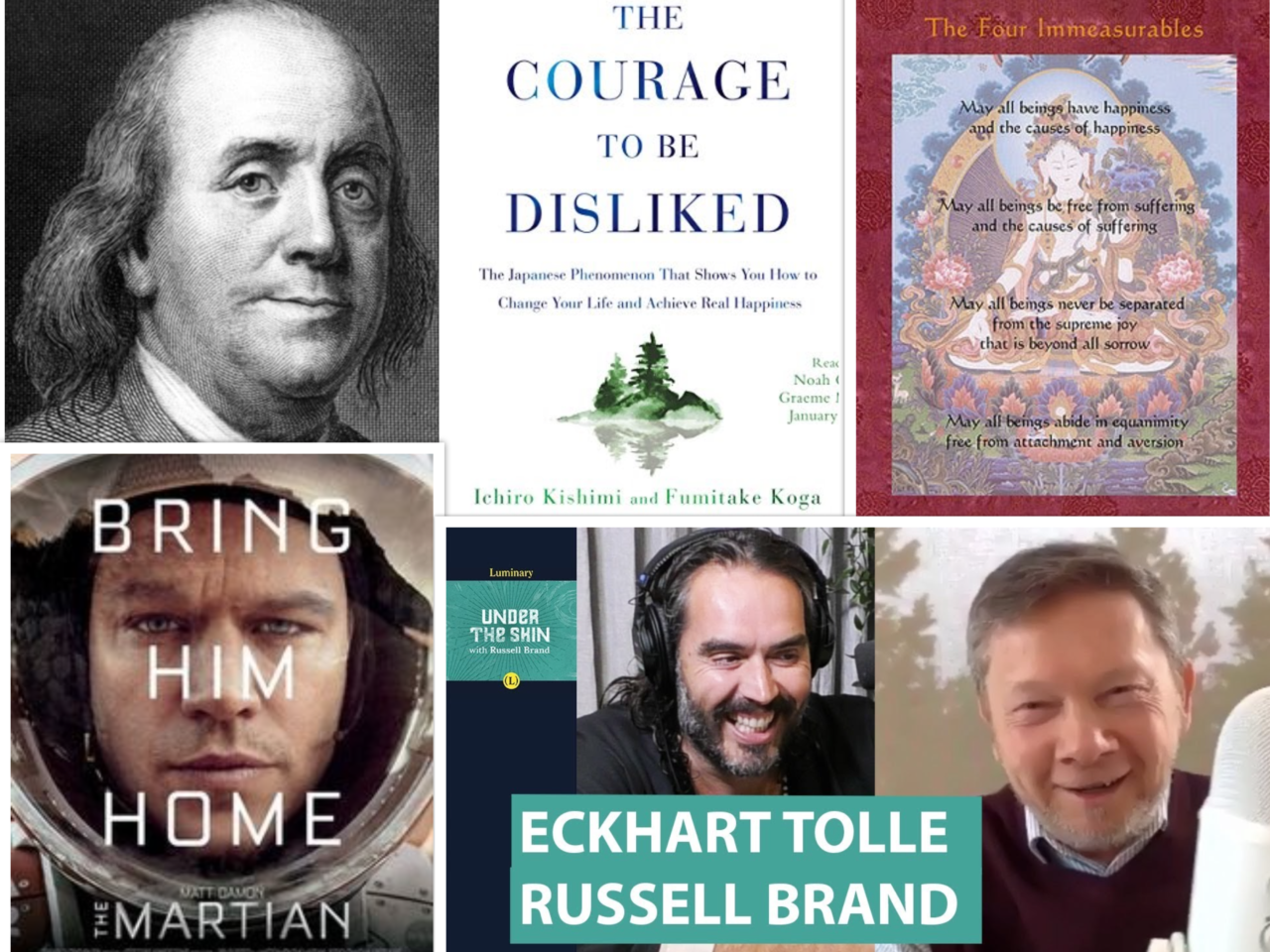Sunday Supplement #48 (April 10th, 2022)
Below is another Sunday Supplement with a quote worth sharing, a book worth reading, a movie worth watching, brainfood worth consuming, and a spiritual passage worth pondering.
I hope you take something away from these recommendations that enriches your week ahead!
Quote of the Week:
“Perception precedes reality.”
– Andy Warhol
Book of the Week:
The Mindbody Prescription – John E. Sarno
John E. Sarno has a historic career in medicine, graduating with degrees from Michigan and Columbia University College of Physicians and Surgeons in the mid 20th century.
Sarno famously came up with the term tension myositis syndrome to encompass a psychosomatic condition that produces body pain, usually back pain.
In his national bestseller, The Mindbody Prescription, Sarno outlines how our minds and bodies operate in unison on multiple levels.
One of the topics Sarno dissects is the phenomenon of the ulcer that highlights this connection.
Ulcers were a common medical ailment until they were discovered to be caused by stress. When this research came through, the number of ulcer cases significantly dropped.
Sarno explains how our minds, when undergoing immense stress, can trigger physical pain in our bodies, culminating in various ailments.
The book delves into the mind-body connection and how we can prevent sickness and injury through proper care of both our minds and bodies.
It is an intriguing read and worth checking out.
Movie of the Week:
Everything Everywhere All at Once
The A24 film Everything Everywhere All at Once is one of the best theater-going experiences I’ve had in a long time.
The movie follows a Chinese immigrant woman who gets recruited on a strange adventure. She is the only person who can save the world by connecting with other versions of herself in different universes to stop a being from destroying them all.
Everything Everywhere All at Once might sound like an overwhelming movie, but the writer-directors excellently guide the viewers along the bizarrely amazing journey.
Currently, this film boasts a 97% critics score and a 96% audience score on Rotten Tomatoes.
Themes in the movie like generational trauma, metaphysics, and nihilism vs. optimism are brilliantly explored throughout.
Everything Everywhere All at Once is still in theaters, and it is worth seeing if you have the chance to go and see it.
Brainfood of the Week:
Alan Watts – Perception | T&H Inspiration and Motivation
T&H Inspiration and Motivation’s mission is to share inspiring wisdom. The goal is to have people pause, think, and reflect.
In Sunday Supplement #16, I featured a clip of Alan Watts discussing how life is not meant to be a journey but rather a dance.
This video clip features Alan Watts discussing perception.
Watts explains how our attention is captured by figures rather than backgrounds and moving things rather than something relatively still.
We attribute a higher degree of reality to these things than those we don’t notice.
Watts described consciousness as a radar that scans the environment looking for trouble. The radar doesn’t recognize the vast space between objects.
Our eyes and our consciousness only pay attention to what we think is important. It is a myopic way of looking at things that screens out anything that isn’t immediately important.
We are much more than this scanning system. It is okay to be on the lookout for danger, but we often make too much of it and shouldn’t be operating in those parameters all the time.
The video goes into further depth about perception and our experiences, but it is worth hearing the ten-minute clip from Watts firsthand.
Closing Spiritual Passage:
“Two monks return to their monastery from a trip abroad. The road is muddy, and they reach an intersection where a beautiful woman wearing an intricate kimono waits, afraid to get her dress dirty. One of the monks walks over to her and offers to carry her across the road. The observing monk watches in horror as his brother helps the woman. The watching monk seethes all the way back to the temple. When he gets there, he chastises the other monk for touching a woman, which is forbidden. His brother tells the fellow monk that he only carried the woman for a minute while the watching monk carried her the whole day.”
– Buddhist Parable
I’ll keep this section short as the quote is long, and I think the parable speaks for itself.
This Buddhist parable is one of my favorite stories that illustrates how our thoughts influence our reality.
The seething monk spends his entire day thinking about one minute, letting that one minute affect his mood.
The other monk’s response reminds us that we can put down our thoughts and move on with our day.
Certainly, some events can linger with us and require time and space to process, but I’m reminded of this parable whenever I’ve carried a thought for too long.
Put down any thoughts weighing you down for a while, and have a blessed week ahead!
2 Comments


